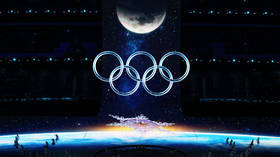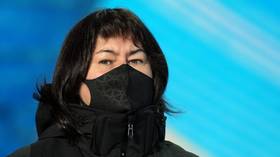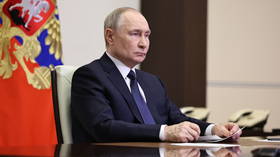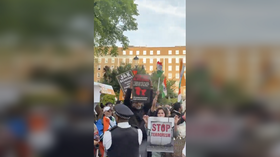‘Stop stealing our culture’! Why a dress has made South Koreans mad at China
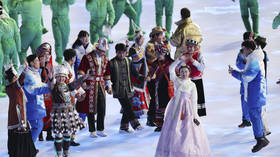
At the opening ceremony of the Winter Olympic games, China featured a representative from all of its 56 official ethnic minorities, clad in their traditional clothing. Amongst the group was a woman from the ethnic minority Korean population in China’s north-eastern regions, close to the peninsula itself, a product of geography and overlap at a time when borders were less absolute.
The woman wore a hanbok, the traditional Korean dress. Although this was just a representation of Korean culture, the display produced an angry backlash online amongst Korean netizens and right-wing politicians, who accused China of “appropriating” their culture. Beijing later clarified this was not the case and that the hanbok was, indeed, Korean, but this fell on deaf ears.
It isn’t a new charge. It’s been a continual theme of China-South Korea relations in recent years, which has stemmed from a nationalist backlash against Beijing. Food rows have broken out over kimchi, the traditional Korean fermented cabbage dish, and when a Korean historical drama used Chinese dumplings in a scene last year, it was subjected to a boycott.
Likewise, when a K-pop star recently praised a Chinese athlete for winning a gold medal, they were subject to attacks. The level of sensitivity is off the scale, and it is a metaphor for the two country’s different sizes, statures, and historical relations.
As someone who lives in South Korea, I know that the country has a rich, comprehensive and unique culture that its population is very proud of. In multiple domains, Korean culture has established admiration on a global scale for things both old and new. It boasts great cuisine, art, and traditions, modern pop icons such as BTS, and global hits like the film ‘Parasite’ and ‘Squid Game’. Korea has so much to be proud of.
But its troubling history and relationship with China creates conflict beneath the surface, a product of geography. South Korea has a considerable cultural overlap with its large neighbor, something which modern nationalists struggle to admit.
If you look around South Korea today, you will frequently see Chinese traditional characters known as ‘Hanja’, Chinese traditional medicine, the celebration of the (Chinese) Lunar Calendar, and a society historically built on the principles of the Chinese philosopher Confucius – one sharing many traditions and customs.
On the surface, it would seem an innocent comment to make the statement that the two countries have a degree of mutual cultural overlap. Korea’s Joseon Dynasty, which lasted for more than five hundred years between the 14th and 19th centuries, was heavily influenced by China’s Ming and Qing Dynasties. Yet, Seoul’s modern nationalism, which seeks to portray identity as absolute, rejects these links. So what is Korea’s has always been Korea’s, and the idea of China claiming any of it becomes a point of attack.
Politics is part of this impressum. The historical dynasties of Korea, before Japanese imperial rule between 1910 and 1945, were known as “tributary states” of the Chinese Empire. This led to a saying in Korean called ‘sadaejuyi’, meaning ‘following the great’, or is sometimes more critically termed ‘flunkeyism’ – something which 20th century Korean nationalism began to reject.
This ideology envisions Korea as an independent nation, one that also strongly rings true across the DMZ in the North Korean capital, Pyongyang. That country’s official philosophy – ‘juche’, roughly translated as ‘self-reliance’ – has as its core that North Korea must be sovereign and not dependent on any other country for anything.
As China has started to rise again as a cultural and economic power, South Korea’s population has started to feel a creeping cultural insecurity from their powerful neighbor’s influence and stature. It’s similar to how this plays out in America, where China’s increased strength has provoked deep-seated concerns. Without the hegemonic aspect of it, South Korea’s insecurities embody similar themes, centering around a fear of a perceived loss of status or displacement.
Whilst China and Korea remain closely affiliated nations in practice, and have a robust economic relationship, the perception of how China views Korea has become a manifestation of these concerns. The Chinese are comfortable saying that aspects of Korean culture derive from them, but for the citizens of the smaller country, this becomes sensitive – a perceived assault on their identity and independence.
South Korea’s alliance with the United States has only made this phenomenon worse, such as when China retaliated against Seoul for the imposition of the THAAD missile defense system in 2016. This enforced perceptions that Beijing was attempting to force its will on South Korea, and, in the midst of the changing geopolitical environment, raised questions about who Korea ought to owe allegiance to, and how it places itself between the superpowers.
It has led conservative South Korean politicians, such as the leading opposition candidate, Yoon Seok-yeol, to actively accuse the administration and party of the outgoing president, Moon Jae-in, of “subservience” to Beijing. The shadow of ‘sadaejuyi’ hangs over South Korea’s politics, and projects insecurity about its own place in the world.
For some, the whole blow-up over a Korean national dress at a Beijing Olympics ceremony is tedious. It is arguable that the United States has caused more harm and violation of Korean national dignity in practice, than what China has. While Korean netizens bristle at China over kimchi and hanboks, the United States has exerted considerable political control over Seoul through effectively controlling its northern border, by acting as a roadblock to peace initiatives with Pyongyang and keeping the peninsula divided, by having the right of operational command over the entire South Korean army during wartime, and by exerting control over its semiconductor industry; the list goes on. Koreans do not seem to be enraged by any of this, yet the target of their ire, China, has no such political dominion over the country.
The central question revolves around what happens as the world geopolitical tectonic plates continue to shift. Korea did not join America’s boycott of the Winter Olympics, nor has it joined in any of Washington's anti-China initiatives. But Yoon, who remains the frontrunner to become president in next month’s election, is urging his country to “take a side” – America’s, of course – something that would put Seoul on a collision course with Beijing in the future. It would then become something much more serious, and potentially much more damaging, than a row over dresses and pickled cabbage.
We don’t see Italians complaining about Americans using pizza, or Irish, Scottish, English and Welsh people all fighting over the definition of an ‘English/Scottish/Irish/Welsh Breakfast’. Yet, in Asia, cultural conflict stands as a projection of political insecurities.
The Korean insistence upon cultural absolutism reflects a lack of confidence, in a continent whose post-war history has been fractured by political division and unresolved conflict, as opposed to the fostered unity and reconciliation in Europe. South Korea has forged its own footing in the world and become proud of itself, but ultimately faces a looming difficult choice: will it look to its east, or to the west?
The statements, views and opinions expressed in this column are solely those of the author and do not necessarily represent those of RT.

